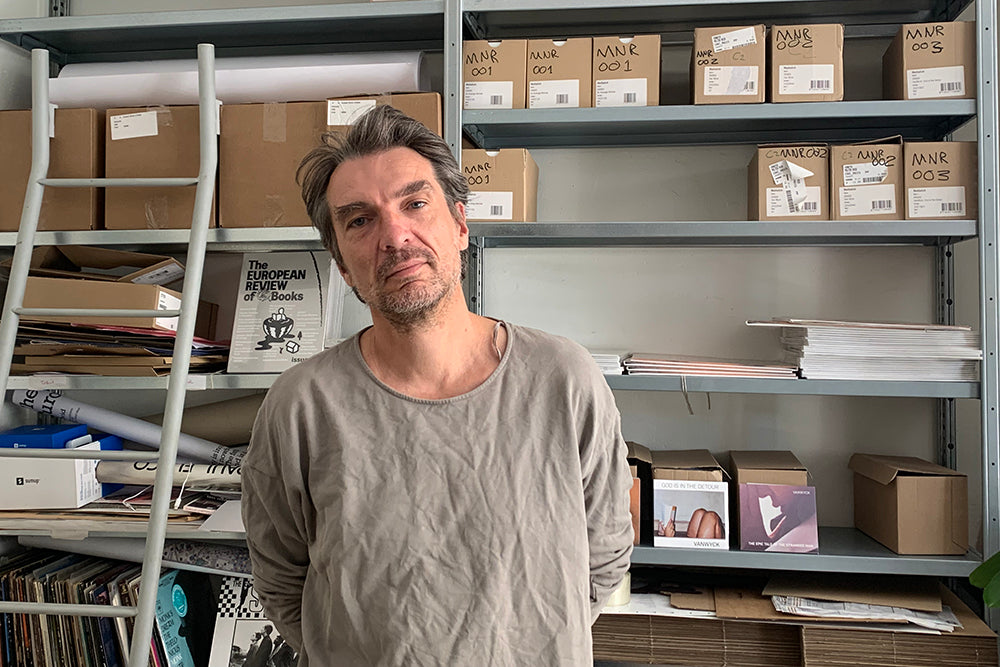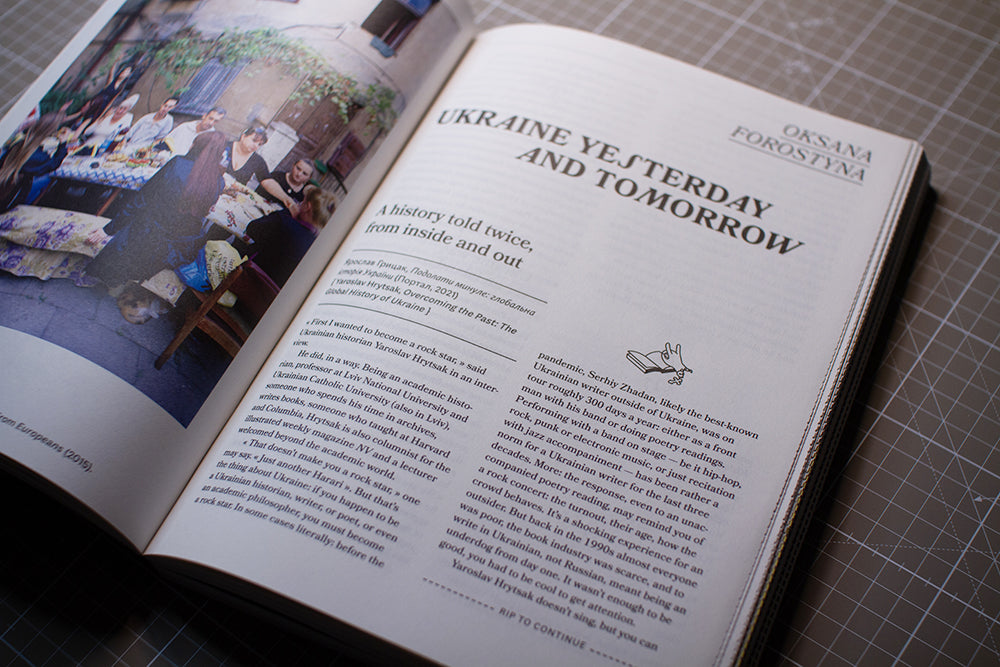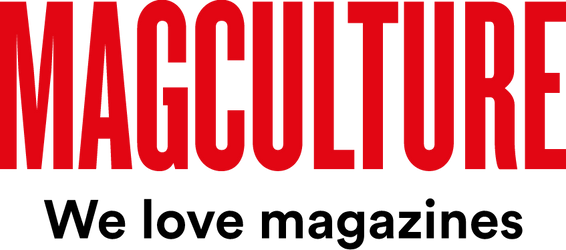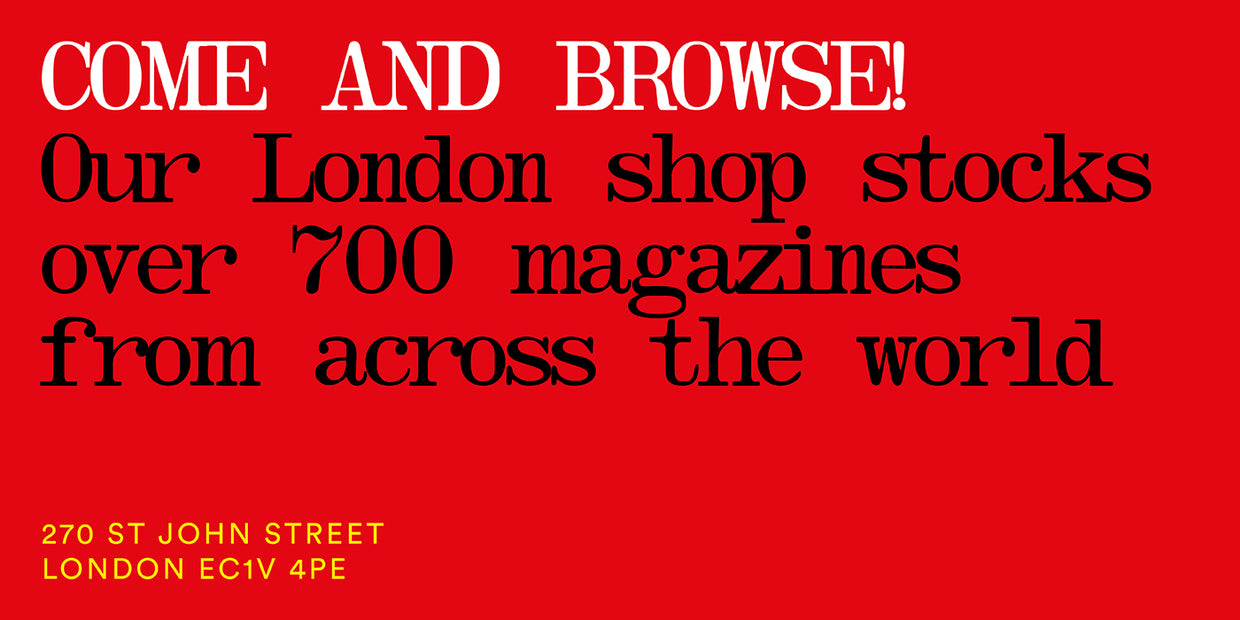
Sander Pleij, The European Review of Books
Award-winning literary writer and author Sander Pleij is one of the three founders of The European Review of Books, an impressive, new 254-page magazine of culture and ideas published from Amsterdam
Before ERB, Sander worked at two Dutch weeklies: De Groene Amsterdammer and Vrij Nederland, and wrote, ‘Explicador’, a novel that ‘desperately needs to be translated into English’. He is currently writing a novelistic anti-biography of Rem Koolhaas.
We meet him as issue one The European Review of Books hits shops.

What are you up to this morning?
Cycling—more on that later. I have also opened my laptop and randomly started answering the most eye-catching emails, without taking into account what needs to be done first.

I am in the room in my house that I am preposterously calling the Library. I am living in Amsterdam and in a few hours I will go to the brown café of a friend, as I do every Monday afternoon, to work from there with whoever of the ERB-team is around.

Describe your desk and your work space.
Here’s where the cycling comes in: I use a ridiculous desk-bike, and pedal while I work. For me it’s the best! The monotony streamlines the working of the body; the brain follows. Moving and thinking. I used to break chairs and molest all solid stuff on my desk. Now I just cycle and concentrate. By the time I arrive at the bar I will have done maybe seventy kilometers –which must be about the same as these infamous 10.000 steps, right?

Which magazine do you first remember?
Donald Duck magazine, of course, American popular culture grabs Dutch kids by the throat at a very young age. It opened up a world that my fantasy could live in for hours and hours.

Which magazine matters to you the most this morning?
N+1! They are obstinate and I love them for it. They just do not give a fuck about anything else than ‘destruction by writing’. The demystificaton takes place in the reformulating. They kick me and shout: You! Make an effort and shake off that lazy thinking of yours. Ok, sometimes I hate them for it.

Describe The European Review of Books in three words.
European? Review? Books?

The name positions it alongside other publications such as The London Review of Books and The NY Review of Books. What is the European outlook that sets it as different?
There’s no one outlook—and if ‘the European outlook’ existed, we would want to turn it inside out. The ERB is necessarily more experimental, and even chaotic, than the LRB and NYRB (great magazines!). Experimental because while there is a ‘European’ orbit to the endeavour, it’s an orbit without a set center or superstructure. We need other metaphors: knocking on a thousand doors at once? We begin from the sense that ‘European’ is curiously up for grabs, and we very much want to keep it up for grabs.

What was the inspiration, the driver, to launch such a bold publication?
I want to read more: more writers, from more cities and more regions, across Europe, and beyond. I want to read scholars who can write in lively, probing ways about their own research. I am tired of ‘opinions’.
I want writing that enlivens doubt as much as certainty. There is so much yet to tell in our ever expanding little universes –humanity is not a foam that consists of tiny bubbles, no, all these bubbles live in us, We are all foamy ourselves, ha!

It features a unique structure, with pages ‘sealed’ at the edges. The reader can start a new article but needs to tear open the edges to continue. Why make it so difficult for the reader?
Is difficult the right word? We’re so conditioned by apps, so used to the illusion of ‘frictionless’ experience, that we need to be reminded of the timeless delight of absorption in a page. That makes it sound like we had the design in mind all along, when in fact it emerged over time, organically.

We had come up with idealistic phrases about layered languages, ‘read it twice’. The ERB’s multilingualism was easy to imagine in digital form; the print design remained a mystery, even to us. Then Patrick Doan, our book designer who reads and draws for every essay, proposed the design of uncut pages, and it just clicked, on every level. The magazine became a physical allegory for the project itself.

Highlight one story that sums up the magazine.
My compadre George Blaustein’s piece on American discoveries of Europe, long before Columbus. Or Linda Kinstler discussing two books on freedom: one from California and one from Albania. Or Oksana Forostyna on untranslated Ukrainian history-writing. Or Ali Smith’s letter to George Orwell on writing, or Alide Cagidemetrio’s essay on Pompeii, or Kalypso Nicolaïdis on the EU’s strange civic rituals, or or…
What one piece of advice would you offer somebody wanting to launch their own publication?
Concept last, people first. Find people that create things you admire and get to work. Creating is researching, exploring, discovering. Sometimes I think the human condition is creating. That life is just: trying, and failing, to answer the question: what the hell are we doing here?
What are you most looking forward to this coming week?
Vacation. I’ll be roadie for singer-songwriter VanWyck, who is playing in Sweden this summer. She also happens to be my wife and is just telling me that she thinks we might have to depart yet another day later. I don’t care, I am going to Sweden.


